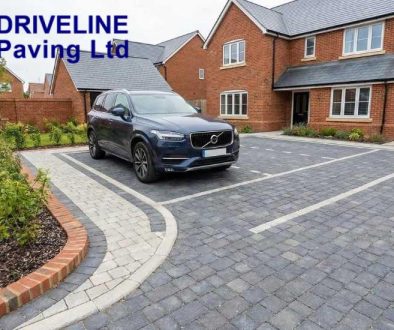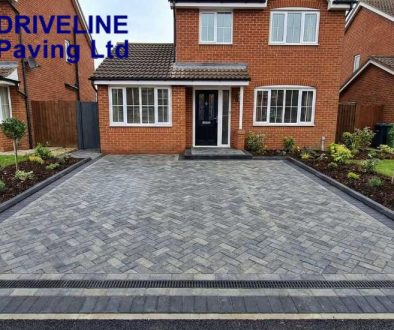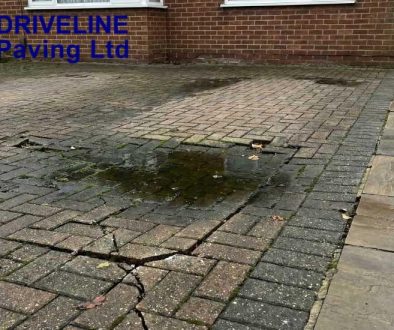Block Paving vs Resin Bound: Cost, Lifespan, and Maintenance Guide
Driveways are more than just functional paths—they frame the entrance to your home and set the tone for your property’s first impression. For Essex homeowners planning to install or replace a driveway, two leading options dominate the market: block paving and resin bound. Each offers distinct advantages in terms of appearance, longevity, and maintenance. Understanding their differences is key to making an informed decision that aligns with both your needs and budget.
Upfront Costs: Comparing Installation Expenses
Cost is often the deciding factor when selecting a driveway material. Block paving typically presents a wide range of price points depending on the type of block used, the pattern complexity, and site preparation requirements. Resin bound surfaces, while more uniform in installation, may carry a slightly higher initial cost due to the specialist materials and resin systems involved.
Key cost factors include:
- Ground preparation: Both materials require a stable sub-base, but resin often demands a smoother finish to bond effectively.
- Material quality: Natural stone aggregates for resin bound tend to be more expensive than standard concrete blocks.
- Labour intensity: Block paving is more labour-intensive due to the laying of individual blocks, increasing installation time and costs.
Although resin bound driveways might appear costlier upfront, their lower maintenance requirements may balance out expenses over time.
Lifespan and Durability: Which Lasts Longer?
Durability plays a vital role in long-term value. Block paving, when professionally installed and properly maintained, can last upwards of 20 years. The individual blocks are robust and easy to replace if damaged, making spot repairs straightforward.
Resin bound driveways are also designed to last, with a typical lifespan of 15–20 years. Their seamless surface is resistant to cracks caused by minor ground movement, and the UV-stable resin prevents fading, even after years of sun exposure.
Durability highlights:
- Block paving: Strong and easy to repair but may shift or settle over time if not properly installed.
- Resin bound: Flexible and weather-resistant but can wear in areas of heavy vehicle turning if not mixed and laid correctly.
In Essex’s mixed climate of rain, frost, and summer heat, both surfaces hold up well, provided they are laid by experienced professionals using the correct base layers and drainage considerations.
Maintenance Requirements: Time and Effort Needed
Maintenance is a critical factor for busy homeowners. Block paving often requires more upkeep, particularly in weed control and re-sanding of joints. Over time, weeds can establish themselves in the gaps, and moss may develop on damp surfaces.
In contrast, resin bound driveways are low-maintenance. Their tightly bound surface structure eliminates gaps where weeds or moss can grow. Cleaning is simple—usually a periodic sweep or pressure wash to keep the surface clear of debris.
Maintenance summary:
- Block paving: Needs regular weeding, re-sanding, and occasional repairs.
- Resin bound: Minimal upkeep with excellent resistance to organic growth and staining.
Homeowners looking for a lower-maintenance option will likely prefer resin bound driveways.

Aesthetic Appeal and Design Flexibility
Both driveway types offer impressive aesthetic value, but their appeal lies in different features. Block paving provides classic charm with a wide variety of shapes, colours, and laying patterns. This allows for personalised designs, from traditional herringbone to modern staggered layouts.
Resin bound surfaces offer a sleek, contemporary look. With a wide range of natural stone blends and the option to incorporate borders or motifs, resin can be tailored to suit most design preferences.
Aesthetic differences:
- Block paving: Ideal for a traditional or rustic finish.
- Resin bound: Excellent for clean, modern styles with seamless finishes.
Design preference often dictates the final choice, and both options can significantly enhance the visual appeal of a property.
Environmental Considerations and Drainage
Drainage is a key concern, particularly in areas like Essex where regulations may enforce sustainable surface water solutions. Resin bound driveways are naturally permeable when installed on the correct base, allowing rainwater to pass through and reducing surface runoff.
Block paving can also be installed as a permeable solution, but this depends on the use of specific porous blocks and sub-bases. Standard block paving is less effective unless properly sloped and drained.
Environmental benefits:
- Resin bound: Complies with SuDS (Sustainable Drainage Systems) and reduces flood risk.
- Block paving: Can be made SuDS-compliant with the right materials and installation methods.
For homeowners concerned about eco-friendliness and drainage compliance, resin bound systems offer a clear advantage.
Installation Time and Disruption
The time required for installation can vary. Block paving typically takes longer due to the meticulous process of laying individual blocks and compacting them into place. Resin bound driveways, however, are often quicker to install—especially on a suitable existing base.
Installation comparison:
- Block paving: Can take up to a week, depending on design and area.
- Resin bound: Usually completed in 2–3 days with minimal disruption.
For homeowners wanting a fast turnaround, resin may provide more convenience, but quality installation should always take precedence over speed.
Long-Term Value: Which Offers Better ROI?
Return on investment (ROI) is a blend of appearance, performance, and upkeep costs. Block paving, while potentially more demanding in maintenance, adds character and appeal, especially to traditional homes. Its replaceability also adds to its practicality.
Resin bound driveways deliver long-term value through durability, low maintenance, and a premium appearance that often appeals to modern buyers.
ROI considerations:
- Block paving: Good ROI if maintained; best for traditional aesthetics.
Resin bound: Strong ROI due to reduced maintenance and clean finish.
Both options can enhance kerb appeal and increase property value when professionally installed.
The Best Choice for Your Essex Driveway Project
Choosing between block paving and resin bound driveways depends on what you value most—design versatility, maintenance levels, cost, or environmental compliance. Block paving offers time-tested charm and repairability, making it ideal for homeowners who prefer custom designs and don’t mind a bit more upkeep. Resin bound surfaces, on the other hand, provide a sleek, modern look, quick installation, and minimal maintenance—ideal for those seeking practicality and visual impact with less effort.
Whichever surface you choose, ensure it is installed by trusted providers using high-quality materials and proven techniques. This will maximise lifespan, safety, and overall satisfaction with your driveway.
For expert guidance and professional driveway installation in Essex, contact Driveline Paving Ltd today for a free, no-obligation quote. Their experienced team will help you select the right solution for your home and ensure a flawless result from start to finish.



